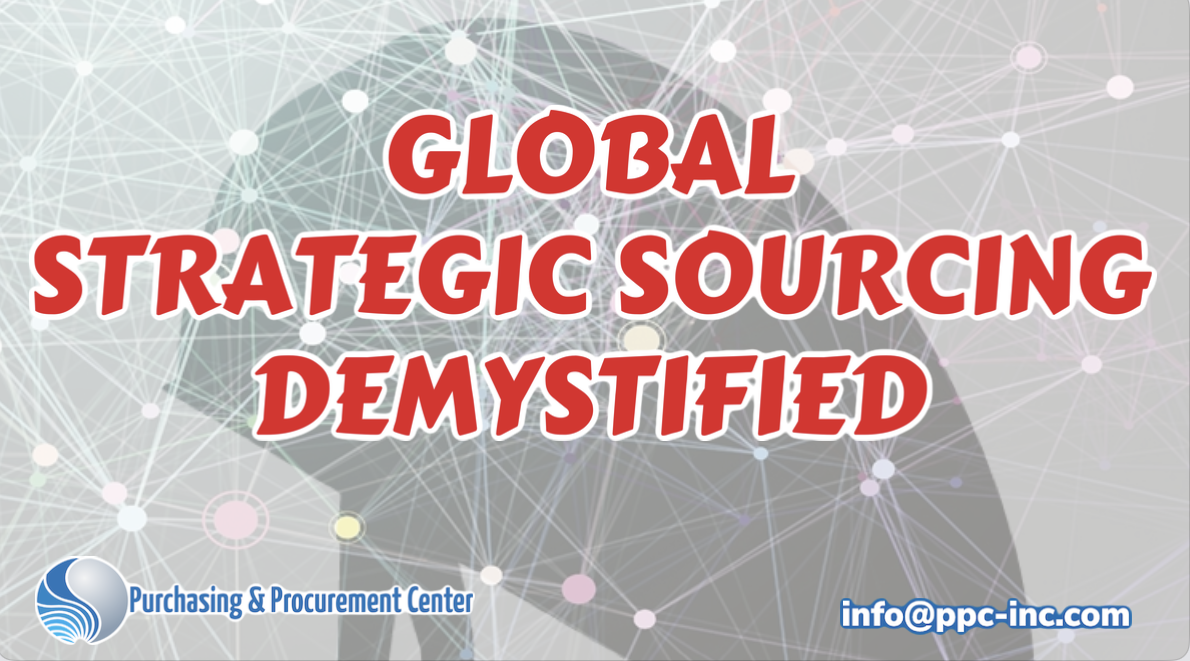
Global Strategic Sourcing Demystified
Why is global strategic sourcing important? It is an organized way of
opening up the procurement process to all potential suppliers worldwide.
What is it all about?
Implementing a global strategic sourcing strategy means efficiently sourcing goods and services from any country that can manufacture the goods or provide the service more economically. Strategic sourcing means getting the best products and services at the best value using a process that achieves a significant reduction in operating costs.
How does Strategic Sourcing work?
Strategic sourcing is a business process that segments third-party external spend and ensures that scarce procurement resources are focused on the most important categories. Spend analysis is used to establish which categories or commodities to focus on where the greatest impact can be made.
Why embrace global sourcing?
If a company wants to stay in business, exploring global strategic sourcing is a definite must. Over 90% of the Fortune 1000 companies have undergone some type of strategic supply chain initiative outside their own country. The use of global sourcing has been the driving force behind the development and expansion of the global economy.
Where do the opportunities lie?
Targeted countries are where English is the preferred language, productivity is high and where there is a large pool of qualified potential employees at all levels, e.g. India. Some more challenging locations like China, Brazil, Vietnam and ex-USSR countries are becoming increasingly attractive to large organisations in USA and Europe.
Early adopters
Three main industries have embraced global strategic sourcing with great success : manufacturing, I.T services and telephone call centers. Professional services firms are already engaging with partners in lower cost countries in the functions of purchasing, engineering and information technology consulting.
Benefits
The costs of labor and materials and transport are lower in developing nations than in the developed world so these countries are the main focus of activity for global strategic sourcing. Significant savings in pay and employee benefit costs can be achieved. There is also often less government oversight and a larger pool of skilled potential workers.
Risks
There are known risks and some unknown ones. Working across different regions exposes companies to language barriers, different cultural norms and many complex financial issues. Pitfalls abound throughout the whole logistics supply chain, from potential long lead times to the added costs of warehousing, shipping and customs clearing.
To conclude….
Global strategic sourcing is not new fad, it has been a strategy for large multinational firms for more than 30 years. Medium size and single-country based companies must take the plunge and embrace it. It may be necessary to their survival in increasing competitive global marketplace. Benefits outweigh the risks and the rewards are extensive.
Return from Global Strategic Sourcing to Global Sourcing of Products
